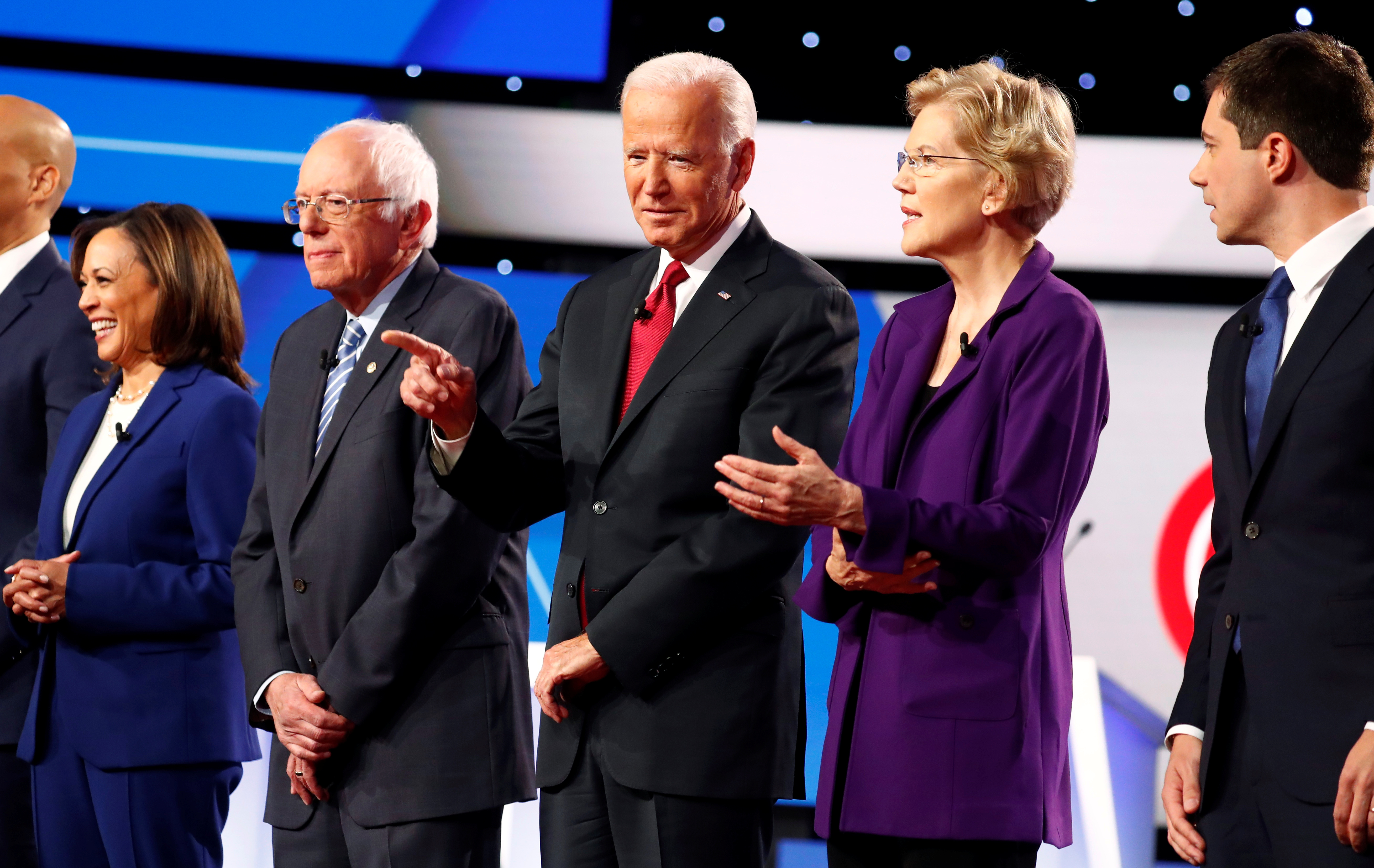- As the presidential race heats up, some democratic candidates have released plans for how they would break up big tech.
- The issue didn’t come up in debates until October, but since then, other candidates like Andrew Yang have talked about the issue more frequently.
- Elizabeth Warren has made breaking up big tech central to her campaign. Bernie Sanders is aligned with her, while other candidates take more moderate positions.
- Visit Business Insider’s homepage for more stories.
Throughout this campaign cycle, some democratic candidates have turned the conversation to the issue of tech monopolies.
Sen. Elizabeth Warren has been running on a platform of breaking up Facebook, Amazon, and Google, which she compares to big oil, and she recently pledged to stop taking donations from tech executives. Sen. Bernie Sanders has his own plan that would remove concentrated power from tech companies, but he largely agrees with Warren.
Most of the other candidates agree that these companies held too much power and that it is a problem, but they have stopped short of proposing specific plans or calling out individual companies and executives. So far, only Sanders, Warren, and Yang have specific plans detailing how they will handle big tech – the most common position among candidates is support for regulation and antitrust enforcement, but not necessarily using executive power to break up tech companies.
Here’s where each candidate stands on breaking up big tech.
Elizabeth Warren has made breaking up big tech companies like Facebook, Google, and Amazon a cornerstone of her campaign, and she has the most specific plan out of all the candidates.

Warren supports increased regulation of tech companies. She describes them as monopolies, and she says that her administration would pass legislation designating them as "platform utilities," which would prohibit companies from owning both a platform and participants, like Amazon acting as a seller in its online marketplace, for example. She would also appoint regulators dedicated to undoing anti-competitive tech mergers.
Warren also recently pledged not to accept large donations from tech executives.
CEO Mark Zuckerberg said that a Warren presidency would "suck" for Facebook in leaked audio published by The Verge.
Source: Business Insider, The Verge
Bernie Sanders "absolutely" supports breaking up big tech companies.
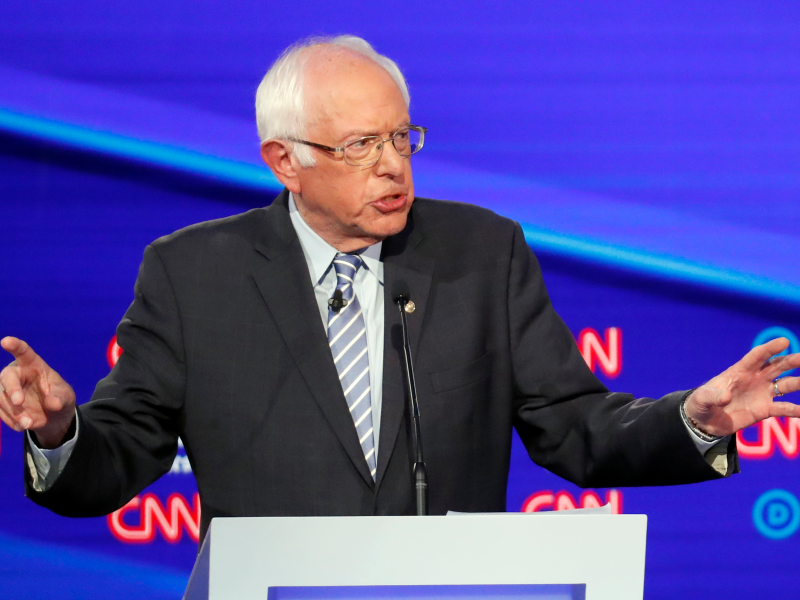
Sanders didn't get to answer the question about tech monopolies at Tuesday's debate, but he did announce a plan for corporate America that would mandate all large companies be partially owned by workers, which would apply to big tech companies.
He told The New York Times, "public policy is so far behind the explosion of technology, that it is really one of the weaknesses of where we are right now as a country."
Sanders has also made wealth inequality a signature issue of his career, and he recently tweeted "billionaires should not exist," which would include tech executives like Mark Zuckerberg and Jeff Bezos. In fact, Mark Zuckerberg even said that he agreed.
Source: The New York Times, Vox, Business Insider
Andrew Yang wants to make data part of property rights, and create a Department of the Attention Economy with "a 21st century approach to regulation."
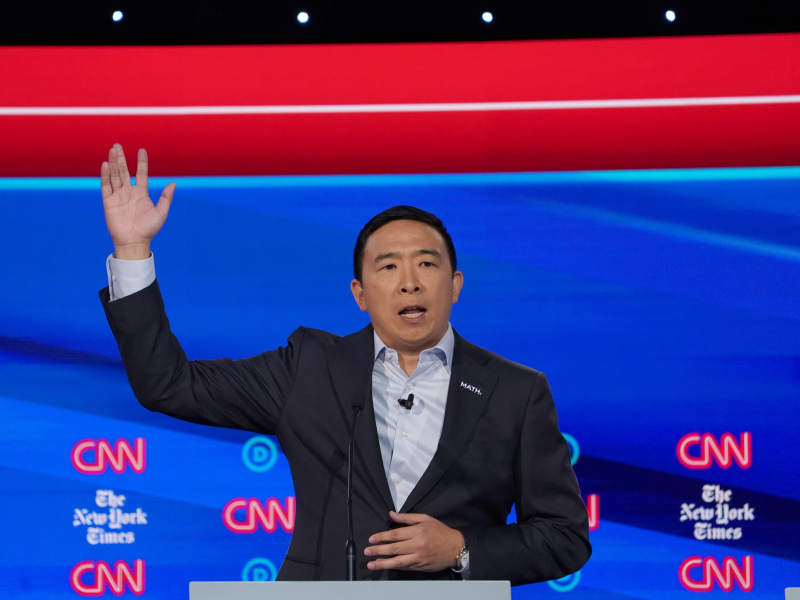
Yang does believe that some tech companies should be broken up, but he also said that the issue is more complicated than how Warren and Sanders portray it. In May, he suggested that Silicon Valley companies should break themselves up.
Some outlets have called Yang "Silicon's Valley's candidate" for his apparent nuance and understanding of how the industry works. Yang's official policy is that he would allow people to own their data as property, increase regulation of digital ads, and use "new metrics to determine competitiveness and quickly identifies emerging tech in need of regulation."
He also believes in regulating AI, and he has positioned his support for universal basic income as the answer to increasing automation.
Source: The Verge, ABC News, CNBC
Sen. Kamala Harris says the decision to break up big tech should be in the hands of the attorney general.
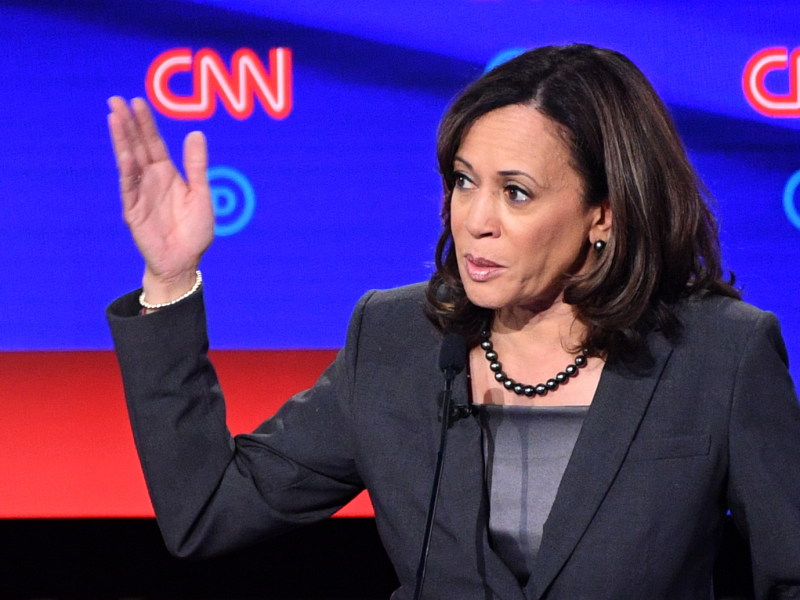
"We need a president who has the guts to appoint an attorney general who will take on these huge monopolies, protect small business and protect consumers by ending the price fixing that we see every day," Harris said. She did not propose new antitrust laws.
Harris told the Times that protecting privacy is her priority over breaking up tech companies.
Source: The New York Times, Axios
Billionaire candidate Tom Steyer agreed that tech companies must be broken up or regulated, but he also expressed hesitancy about what that could do to the economy.

"We have to understand that Mr. Trump is going to be running on the economy," Steyer said.
Source: Axios
Sen. Cory Booker talked about the danger of corporate consolidation, but does not support breaking up tech companies.
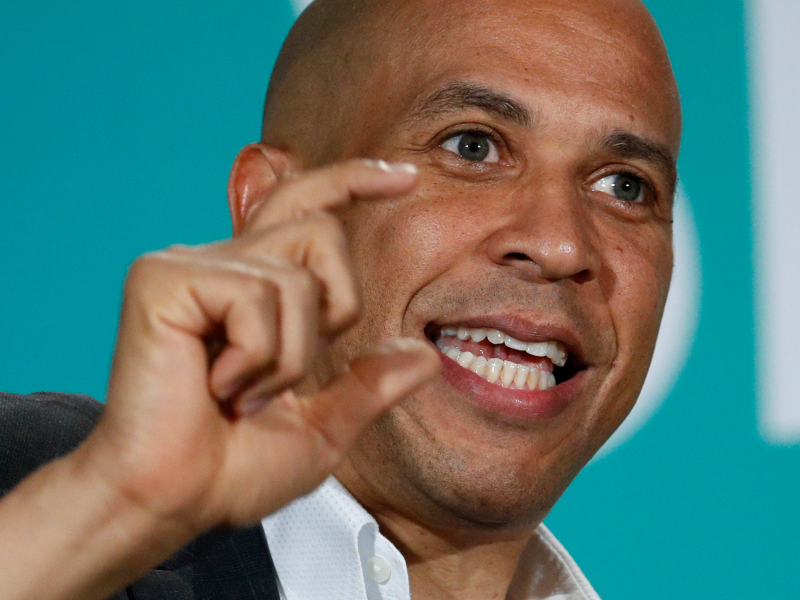
Like Kamala Harris, Booker said that he would appoint an attorney general committed to enforcing antitrust law and strengthen the Justice Department.
Source: The Verge, The New York Times
South Bend Mayor Pete Buttigieg has declined to call out specific companies, although he said the concentration of power should "set off alarms."

Like many other candidates, Buttigieg said he's worried about monopolies, but did not say that he would break up any companies specifically.
Buttigieg noted that he's worried about issues like privacy and data ownership.
Source: The New York Times, Politico, The Verge
Former Vice President Joe Biden has said that he's open to breaking up big tech.
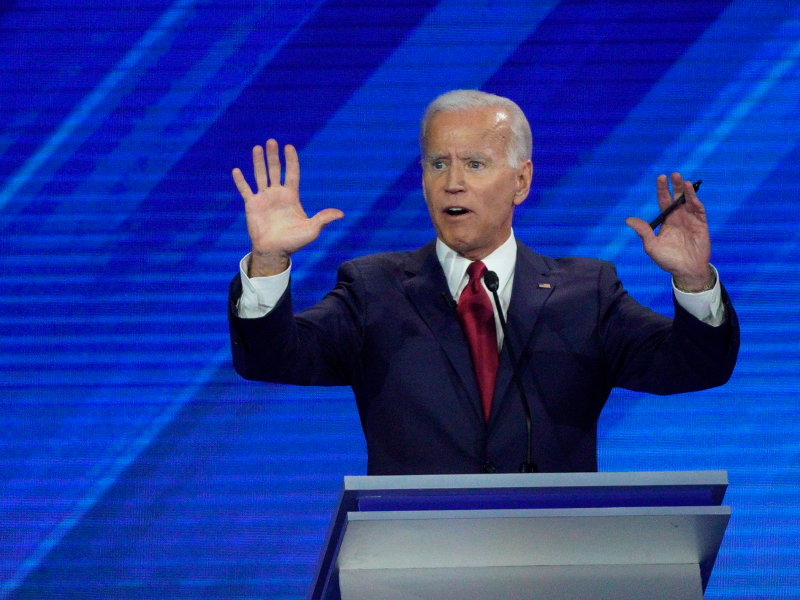
Biden also recently criticized Facebook for allowing the Trump campaign to run ads with false information about his son Hunter Biden, but he didn't speak up about the issue at the debate.
Source: Associated Press, US News & World Report
Sen. Amy Klobuchar said that she wouldn't break up companies, but she would enforce antitrust legislation.
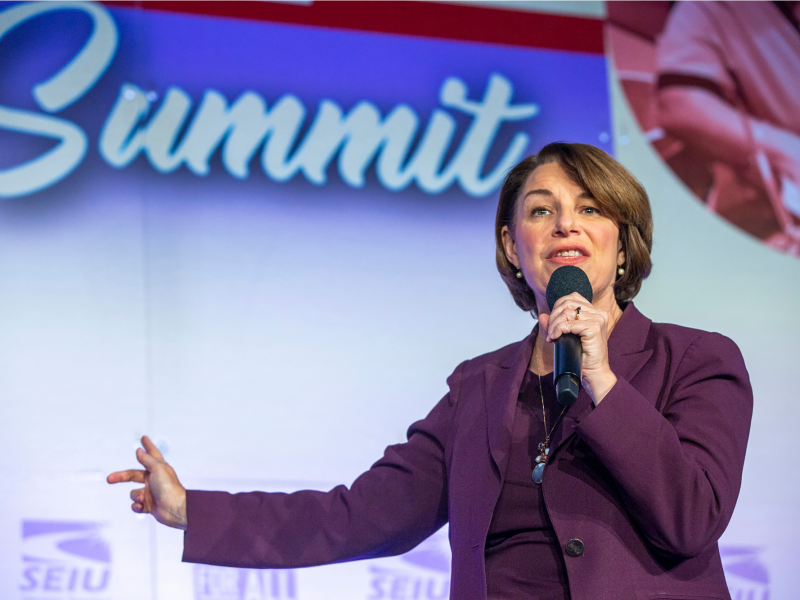
Klobuchar said she will push to strengthen the Federal Trade Commission and Justice Department and sure they're better funded.
"We need to start talking about this as a pro-competition issue," Klobuchar said.
Source: Axios, The New York Times
Julian Castro is for cracking down on tech companies.
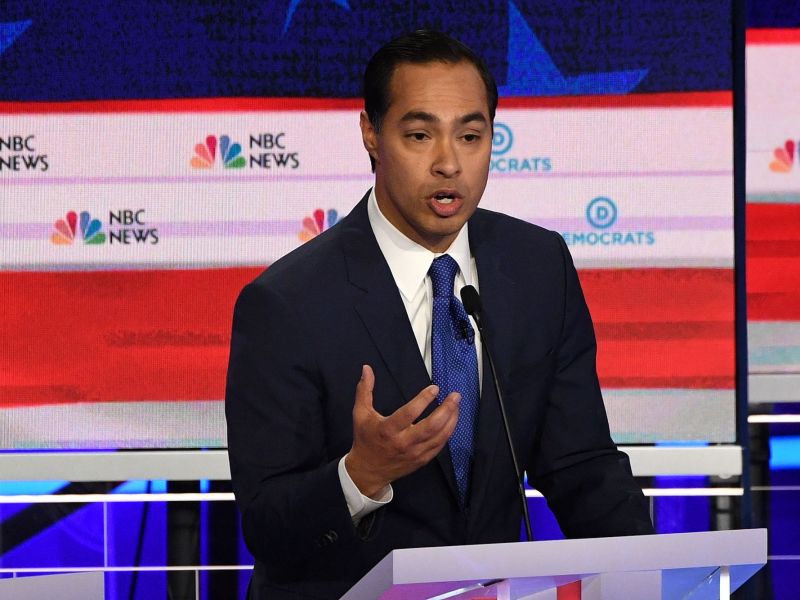
"We need to take a stronger stance when it comes to cracking down on monopolistic trade practices," Castro said.
Castro specifically called out Amazon and sees big tech's issues as part of a larger tendency toward monopolies nationally.
Source: Julian for the Future, The New York Times
Rep. Tulsi Gabbard has praised Warren's plan, and said that she would introduce similar legislation.
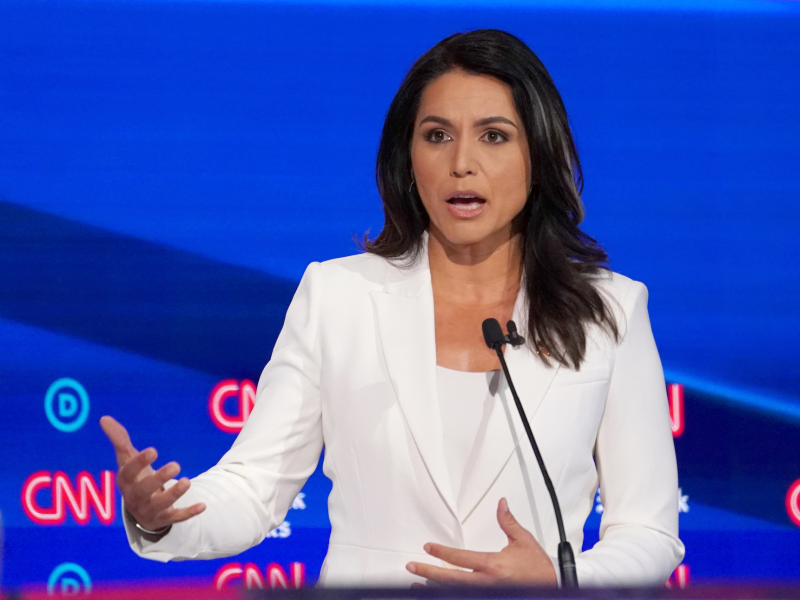
Gabbard has said that big tech companies abuse their power and has called out Facebook, Google, and Amazon specifically. Gabbard told the Times that tech giants have both invaded users' privacy and crushed smaller companies who they view as competition.
Source: The New York Times
Colorado Sen. Michael Bennet agrees with other candidates, and has said that the antitrust division of the Justice Department should look into tech companies.
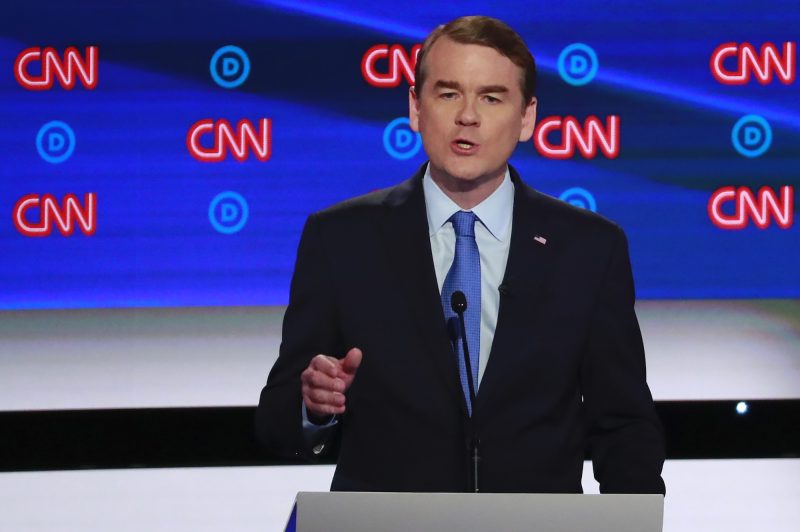
Bennet noted that every company is different from each other, but that we should "absolutely examine" whether they should be broken up.
Source: The New York Times
Montana Gov. Steve Bullock wants to make sure that large tech companies pay taxes without loopholes.
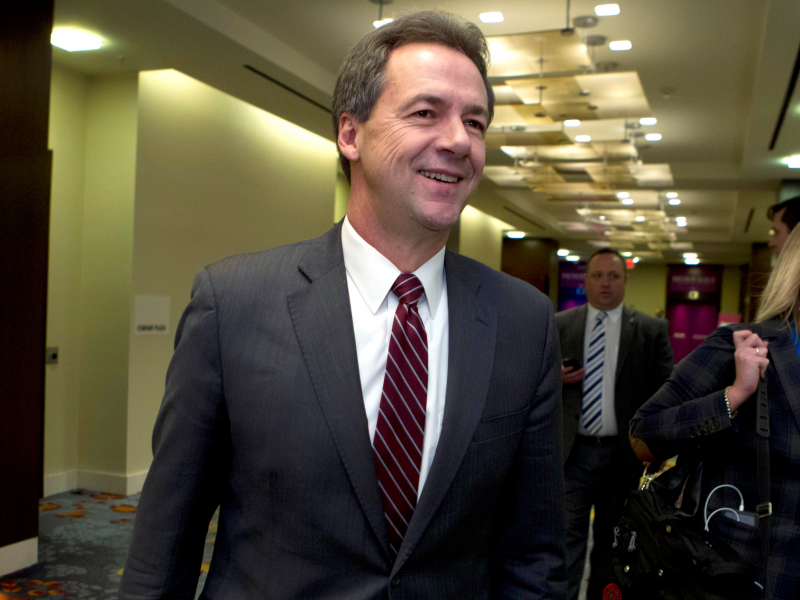
"The fact that Amazon made $10 billion of profits and didn't pay any taxes last year, shows structural issues all together," Bullock said in an interview with the Times.
Source: The New York Times
Former Rep. John Delaney supports increased regulation and updating antitrust laws, but not breaking up big tech.
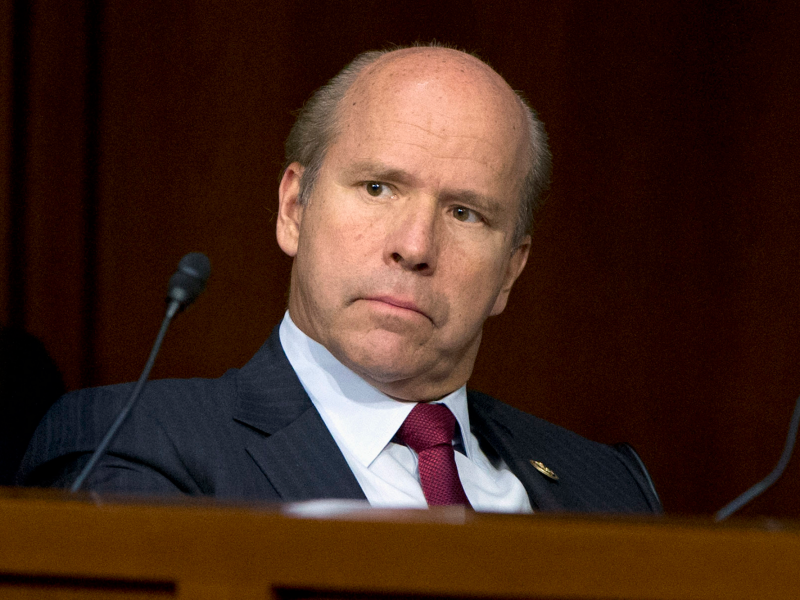
Delaney said there's more work to do around privacy and giving consumers access to their data, and ensuring consumers know how their data is being used.
Source: The New York Times
Marianne Williamson said "I have no problem with the idea of breaking some of these companies up."

She described big tech companies as having "giantism" and said they're the free market, potentially hindering young entrepreneurs who might be the next Mark Zuckerberg or Jeff Bezos.
Source: The New York Times

